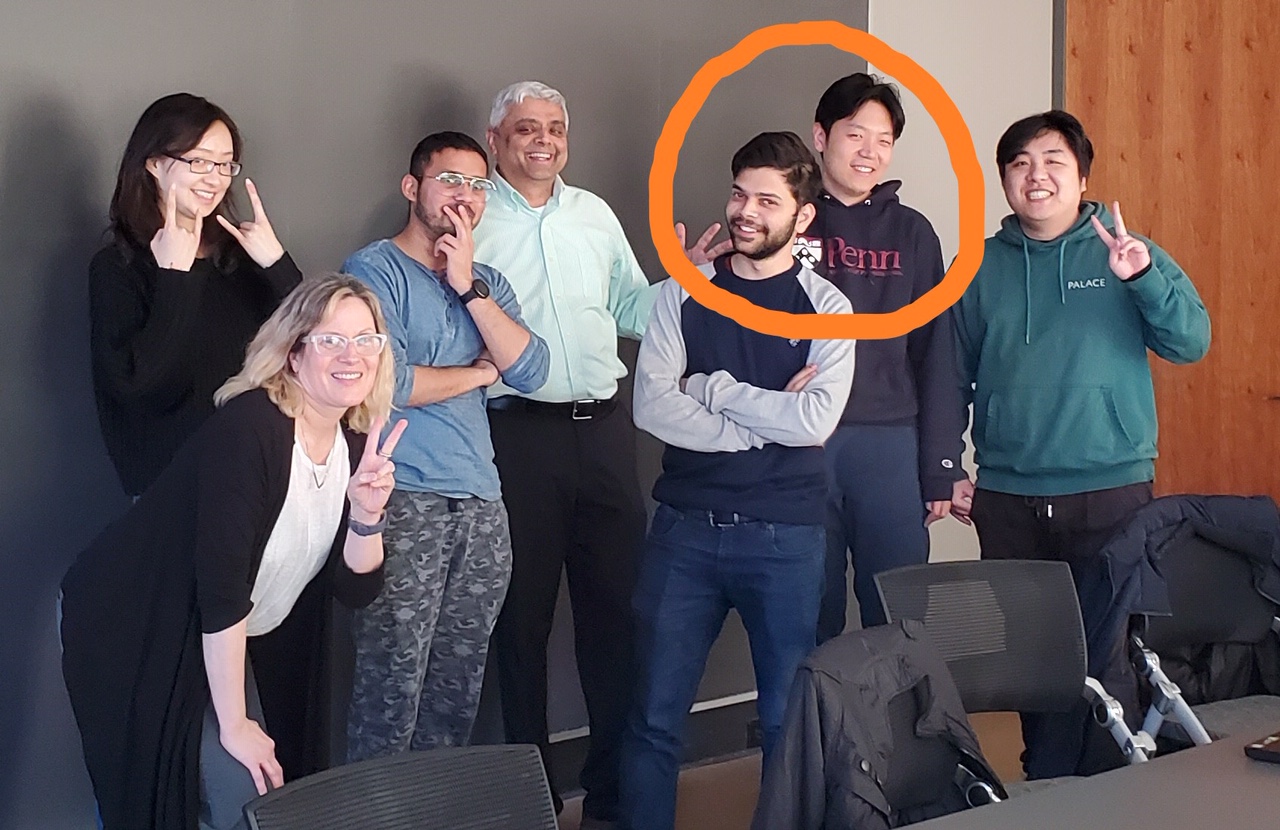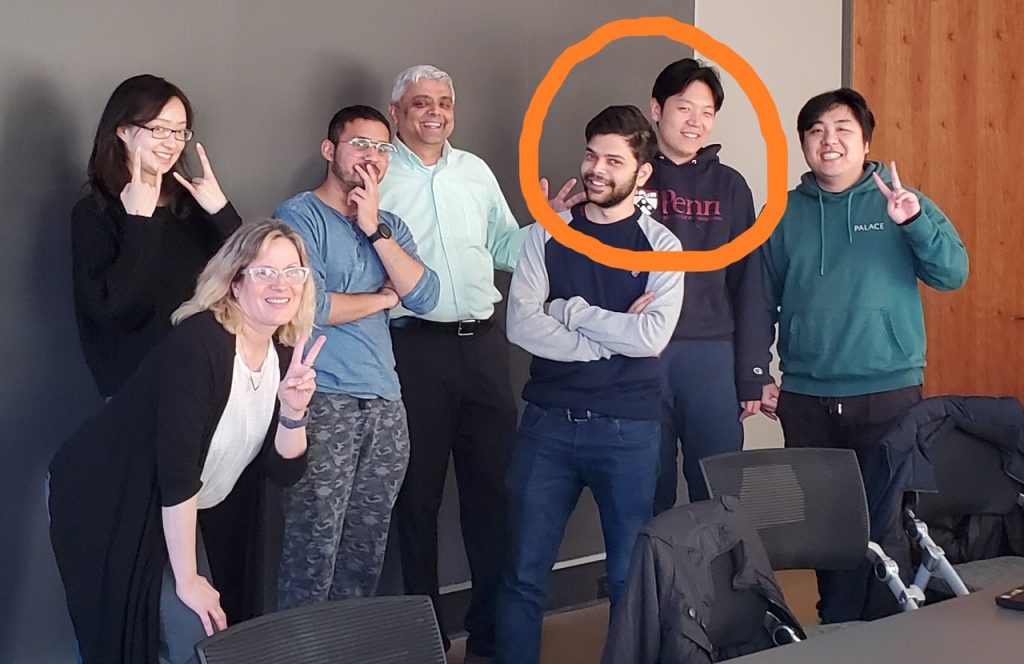
When You Need Help With Your Circuit

Getting started with engineering means a flurry of microcontrollers, electronics, breadboards and code. At Detkin Lab we have teaching assistants ready to offer help, but few people know what they really do. So, here’s an interview with two of our engineering TAs— Suveer Garg (left) and Francis J. (right) to reveal lab life.
What kinds of questions are you asked by students?
Suveer: Students often come to ask us if Detkin has a certain electronics part available. We generally ask them what project they are working on and then sometimes the part they are looking for is not best suited for what they are doing. For example, what kind of radio to use if they want to broadcast a message. Sometimes they come to get help on setting up a part they borrowed from the lab, like microcontrollers for ESE 516, or to understand how they can use a part for their personal projects. We once had a student come in to learn how to use a de-solder pump while trying to build his own keyboard.
Francis: Which are the best tools for certain projects, parts ordering and the lab schedule.
Have you had any students that were having self-doubt or were stuck on their projects?
Suveer: I once talked to an ESE 516 student who had lost hope one day before her deadline because her board was faulty and she had gotten a replacement only that evening. Since everyone on the staff had taken the course before, we were able to talk to her about it and give her a realistic estimation of the time it might take and how it was still doable.
Francis: During midterm/final season, things can get stressful in the lab. I think the best way I can support my fellow classmates is to provide prompt answer to their questions. Make them feel that Detkin is always here to help.
What do you think students enjoy most about the labs they do at Detkin?
Suveer: I think it is the tangible nature of hardware projects that makes the labs at Detkin exciting. It is thrilling when students tune the control algorithms they wrote to get the bot to balance, witness how they can control the direction or speed of motor with just a few lines of code or power a board that they have designed on their own.
Francis: Rich resources, flexible environment, and supportive staff.
Why study engineering?
Suveer: If the pandemic has taught us anything, it is the importance of cyber-physical systems. The doors that automatically operate so that you don’t have to touch them, the online infrastructure that has kept the world going or telepresence robots that are helping doctors accomplish more. At Detkin, courses teach students the underpinning of such cyber-physical systems which are becoming more important by the day.
Francis: Our modern life is built on technology. Engineering literacy is becoming more and more important for individuals’ success, and for the prosperity of society as a whole.
What do you see as the future for engineering?
Suveer: I feel that tech will improve accessibility for everyone and will make mundane tasks in agriculture and other areas easier so that humans will be freed to pursue more creative endeavors. Engineering will play a crucial role in taking new tech to market.
Francis: The foundation of tech industry is engineering. Engineering enables the tech industry with basic tools (semiconductors, devices), and with the development of tech, the efficiency of engineering research can also be improved.
What do you wish for the engineering students at Penn?
Suveer: I wish that engineering students carry on the legacy of Benjamin Franklin and continue to push the envelope of science and technology. I hope they find excitement and joy in building. Since engineering is a lot of trial and error, the role I can play is providing support when needed so that students do not give up at a task that at the moment might seem too daunting, and that they also get to experience the joy of creation.
Francis: I wish for everyone to be healthy and happy during this uncertain time, and I hope ESE students can achieve their own goals with engineering skills they’ve learned from Detkin. I will provide my best support for their lab work.
A big shout-out to Suveer and Francis for taking the time to share their lab life. Although most of our lab work will be done remotely, please know that our teaching assistants will be there to guide you with wiring, selecting parts and helpful suggestions for improving code. Having a hands-on class is even more important as we live in a Zoom world, so get ready for some circuit building excitement.
